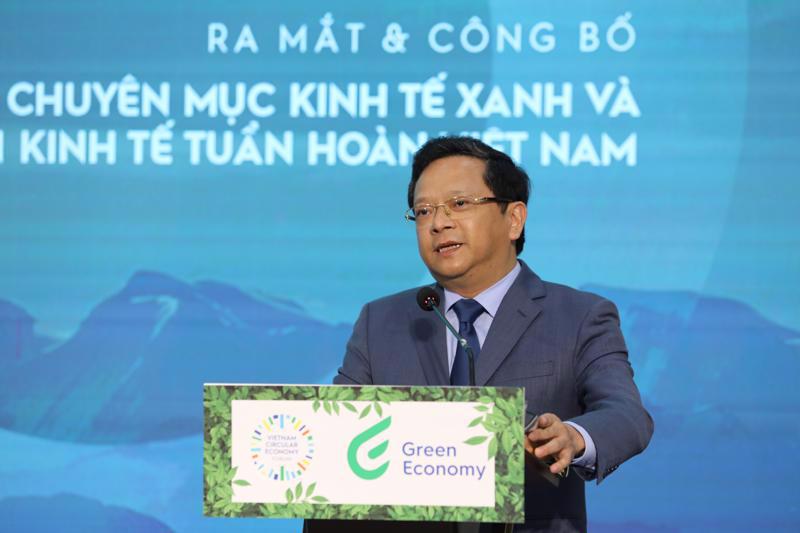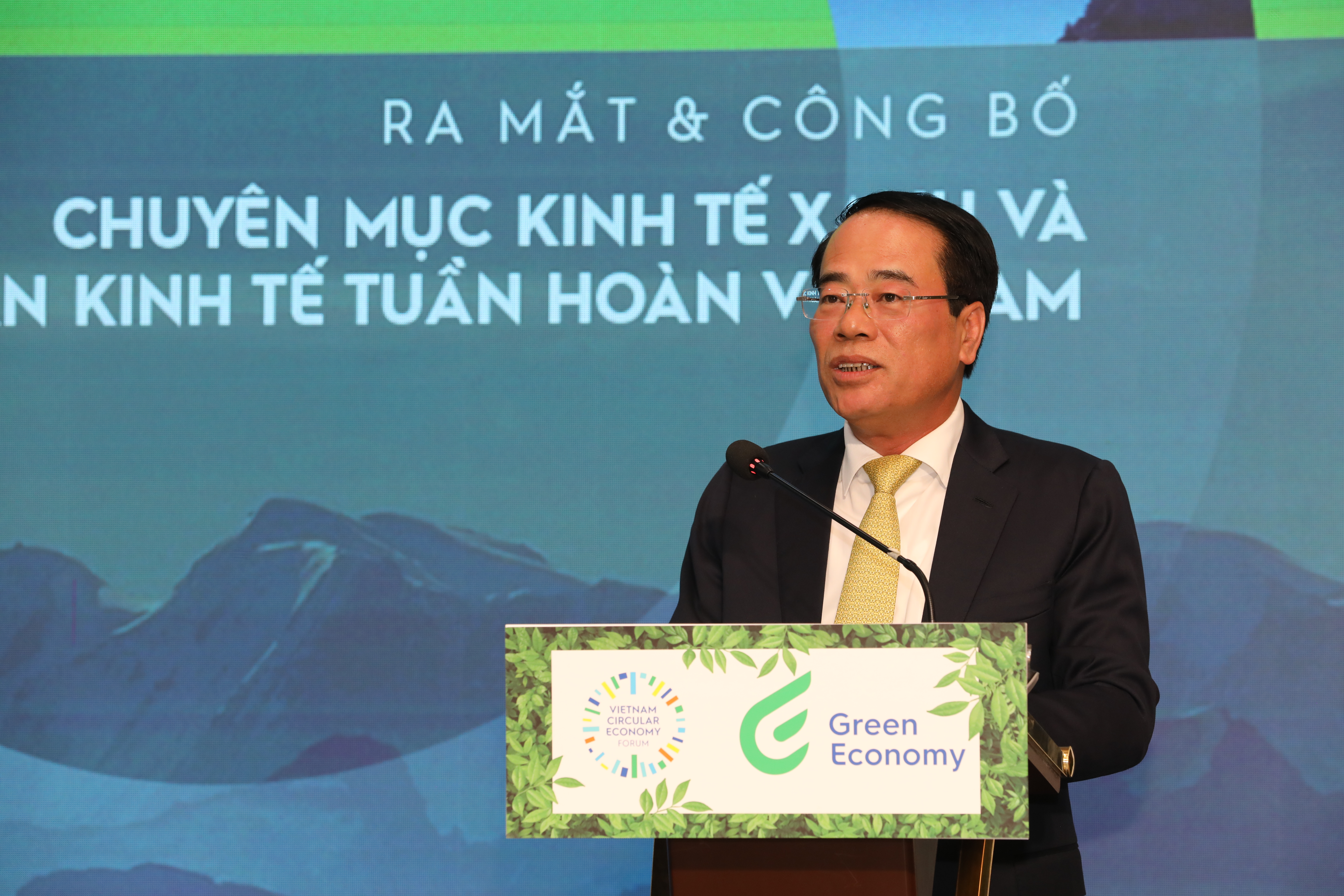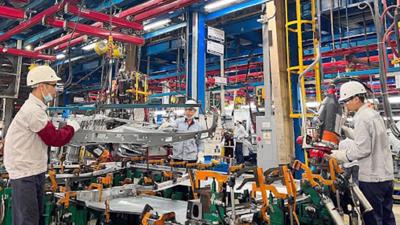More support needed from the government in building a green and circular economy
Business are in need of greater assistance as they move towards sustainable development, VnEconomy / Vietnam Economic Times seminar hears.

Many experts at a VnEconomy / Vietnam Economic Times seminar entitled “Businesses leading the way in implementing ESG and the Circular Economy” on June 7 noted that while the development of a green and circular economy is being promoted, additional support from the government is still needed.
Dr. Nguyen Duc Hien, Deputy Head of the Central Economic Commission, told the seminar, which was co-hosted with agencies from the Ministry of Natural Resources and Environment (MoNRE), that the direction for developing a green and circular economy has been clearly outlined in resolutions such as Resolution No. 29-NQ/TW on continuing to promote industrialization and modernization to 2030 with a vision to 2045, Resolution No. 55-NQ/TW on the National Energy Development Strategy to 2030 with a vision to 2045, and Resolution No. 06-NQ/TW on the planning, construction, management, and sustainable development of Vietnamese urban areas to 2030 with a vision to 2045.
Core government strategy
“Regarding orientations and general policy, we have a solid foundation in place to develop a green and circular economy,” Mr. Hien said.
The government has also issued the National Strategy for Green Growth for the 2021-2030 period with a vision to 2050, through Decision No. 1658/QD-TTg. MoNRE is also urgently developing a national plan for the circular economy along with a series of other policies.
Echoing Mr. Hien’s sentiments, Dr. Tang The Cuong, Head of MoNRE’s Department of Climate Change, said Vietnam has a roadmap for reaching net-zero emissions. Specific actions to achieve this goal have been outlined in the Nationally Determined Contributions (NDC), the National Climate Change Strategy, and the National Green Growth Strategy.

Various ministries have also developed their own action plans to contribute to the overall objective. The Ministry of Transport, for example, has developed and implemented a strategy on green transportation.
“This strategy aims to reduce greenhouse gas and methane emissions in the transportation sector, making a significant contribution to the country’s overall efforts to mitigate the impacts of climate change and promote sustainable development,” he told the seminar.
With many countries and regions implementing trade mechanisms and policies for environmental protection, such as the EU, with its Carbon Border Adjustment Mechanism (CBAM), and the US and the UK, Vietnamese businesses are facing pressure in these stringent markets.
“Implementing environmental, social, governance (ESG) criteria and a circular economy will not only help businesses adapt to international requirements but also create opportunities for them to develop green products and services that are harmonious with the environment and society,” Dr. Cuong added.
Strengthening the government’s role
To promote the development of a green economy and a circular economy, Mr. Hien emphasized that beyond issuing regulations, the role of the State also needs to involve raising awareness among businesses and policymakers. This should not only be done through documents but also through multimedia channels to more powerfully spread the message.
“We need to raise awareness about the green economy and the circular economy through media channels and interactive seminars,” he continued. “These are all very important channels.”
Digital transformation is not only an effective tool for enhancing productivity and competitiveness for businesses but also an indispensable measure on the journey towards a sustainable and green economy.
“Integrating digital technologies into production, management, and marketing not only helps businesses save time and costs but also minimizes negative environmental impacts,” he said.
Additionally, if financial institutions transition to a green economy but the State does not introduce mechanisms to encourage financial institutions, such as commercial banks, to allocate resources for green finance, they will not be overly enthusiastic because they need to address both short-term and long-term goals.
“Therefore, the State needs to direct policy packages and their implementation to accompany financial institutions in their green transition process,” Mr. Hien recommended.
Expanding on communications efforts regarding the development of a green and circular economy, Dr. Cuong noted that the newly-launched green economy sections in VnEconomy and Vietnam Economic Times will motivate pioneering businesses in implementing ESG practices and the circular economy. These will also drive organizations and enterprises towards a green transition, sustainable development, and greater competitiveness.
“Moreover, the collaboration between MoNRE and VnEconomy / Vietnam Economic Times through these news sections will provide businesses with more information to participate in global trade and investment mechanisms,” he added.
This is particularly important, he continued, as many countries and regions are establishing and implementing technical and trade barriers, such as the CBAM, on Vietnamese exports.





![[Interactive]: Economic overview - October 2024](https://media.vneconomy.vn/400x225/images/upload/2024/11/07/6abc3c6d-d540-4fc8-ab91-9ef3dfe30e0e.png)

